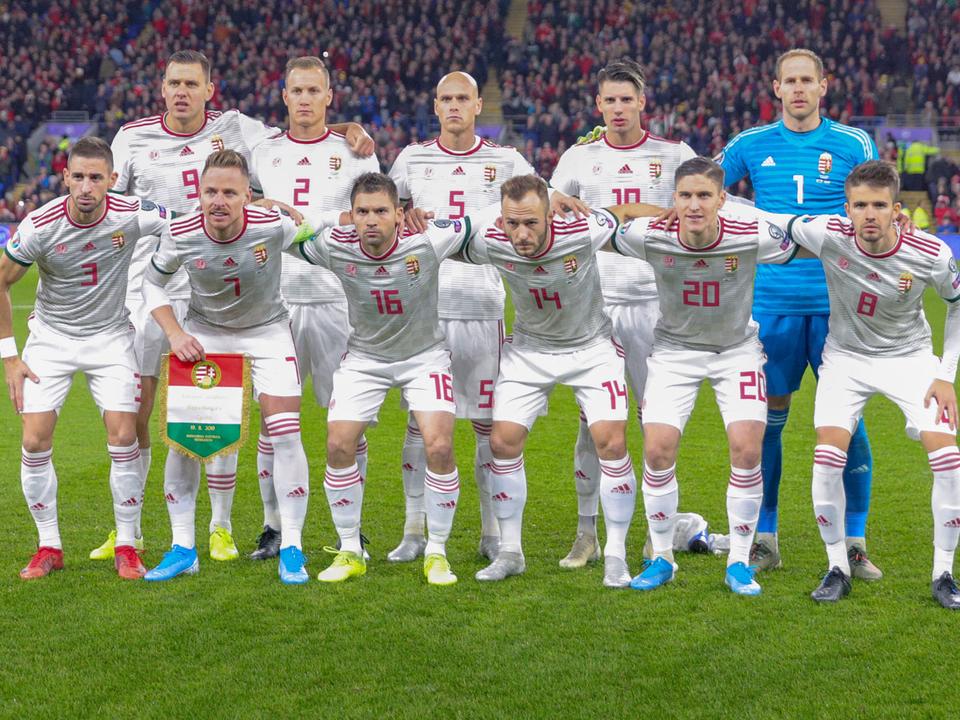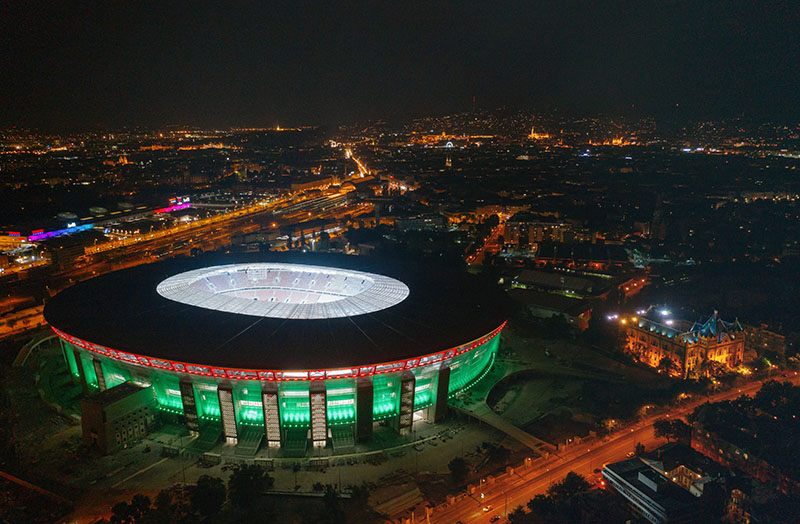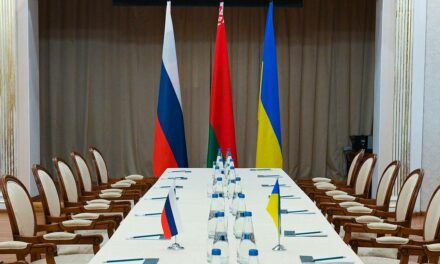Why is what was once good bad? What is wrong with the globalists with the stadiums and the football EC? Because they never had a problem with him, in fact! This is what Irén Rab thought about in his Magyar Hírlap opinion article. Some excerpts from the article:
"The organization of the European football championship is not a state matter, but a national matter. The main actors are the football associations, the local governments and the very wide range of sports lovers must play a role in it, the state is only a supporting and complementary partner," Prime Minister Ferenc Gyurcsány said in 2005.
In his usual big-talking way, he promised everything he could think of. An expressway that would connect the Hungarian and Croatian venues of the European Championship, stadiums accessible by highway, a high-speed train running at a speed of 160 kilometers per hour, and an airport to each host city. The attic of the Parliament was filled with promises. According to the surveys, eighty-nine percent of the population supported the idea of the arrangement, even the opposition Fidesz, although they called the socialists' statements about sports campaign-like and discredited.
Because during their four-year reign, the socialists reduced sports funding by a third, stopped the stadium reconstruction program, took away the normative support for student sports, and did not pay out the grant money due to sports associations. So, they did the exact opposite of what they were preaching about so beautifully.
The application for the 2012 European Football Championship had to be submitted in 2005. The jointly arranged Hungarian-Croatian candidacy documentation ran to a thousand pages and then cost half a billion, the Hungarian guarantee was undertaken by the head of the socialist government himself and signed by the Minister of the Interior, a certain Mónika Lamperth, in all the necessary places. Fortunately, due to the joint arrangement, only four stadiums had to be presented, but none of them were ready. The UEFA committee that arrived at the site was shown mock-ups and visual plans, and then it would be like this, they said...
...Prime Minister Lárifár personally traveled to Cardiff in the spring of 2007 to put pressure on the UEFA decision-makers with the weight of his presence. He brought with him everyone's wild joker, Tamás Gyárfás , chairman of the organizing committee, and Hungarian football traditions were represented by Szőke Szikla, aka Kálmán Mészöly . They trusted in the authority of Hungarian football and the Hungarian Prime Minister.
The golden-legged Platini pulled out the winning envelope, which contained the Polish-Ukrainian reconciliation application. For us, the common history, the eight-hundred-year-old personal union and the late reconciliation did not matter, the Hungarian-Croatian tender, which was said to be the most likely, did not receive a single vote. "If the tender and the presentation made the decision, the responsibility is mine - said Gyárfás to take away the trouble - if it was other political or business considerations, then this responsibility is shared." Then he cried in front of the cameras because he disappointed the Hungarian people...
...The Hungarian opposition at the time, Fidesz, on the other hand, saw precisely the reason for the failure in the person of Ferenc Gyurcsány. The hot autumn in Budapest in 2006 resulted in a loss of confidence in Europe, and Gyurcsány's trustworthiness and guarantee were more of an obstacle than an advantage for Hungary. Moreover, at the European Swimming Championships - when it was not built, not there and not as promised - the European sports organizations were able to experience how much the Gyurcsány guarantee is worth...

It was nice boys! (Photo: National Sport/Attila Turök)
...Finally, we managed to obtain the rights to direct Morzsány for 2020, but we had to fight for the participation, as the automatic director's quota did not apply. The pandemic also intervened, pushing everything back by a whole year.
This current one was intended to be a true European European Championship, where the continental competition will take place on the entire continent, in eleven cities of eleven countries. From the original thirteen locations, UEFA deleted Brussels from the list, as the stadium construction there did not proceed at the required pace. (It seems Brussels is characterized by slowness on all levels and topics.)
Let's face it, this arrangement covering the entire continent is not exactly a lucky idea, and not only because of the coronavirus epidemic that intervened. Teams, press workers and certified virus-free fans will fly across European airspace from Dublin to Baku. Environmental awareness is superseded by the main European value, the idea of supranationality. I can already see the future Olympic announcement: at least three continents should apply for jointly organized Olympic Games!
The Greens will have something to protest, they can calculate the per capita carbon emissions of the European Football Championship and how much it will shorten the Earth's already shortened future. The epidemiological situation helps the environmentalists a little, but there will not be that much travel, because three of the host cities did not originally undertake to play in front of spectators, and the others only issue tickets for a quarter or a third of the seats. The way I see it, Puskás will be the only full-house stadium, where the entire arena will not be roaring virtually, where there will be a real match atmosphere, and where, because of this, the best matches will probably be played.
The Puskás Arena, which was built in two years before the stipulated deadline, was designed by Hungarians and built by Hungarian companies for a net cost of HUF 142 billion. If K-monitor says this, then it must be true, they know everything, even that the two main contractor construction companies can be linked to the opposition's corruption target, Lőrinc Mészáros . I love the opportunity offered by the Hungarian language, with a simple little active verb, you can immediately cast a shadow of suspicion on anyone, without it being considered defamation in the eyes of the law.
But that's...
...In Puskás, "Central Europe's largest capacity, most modern multifunctional experience arena" - thanks to the government's successful epidemic management - four full house matches will be played. I would be happy if sports economists would calculate how much Hungary benefits from the fractionally organized European Championship, so that even the blind and partially sighted can see why it is worthwhile to build stadiums and invest in sports.
"A sports event is a national cause, it requires social cooperation," said Gyurcsány back in 2005. Now, however, that the thrush does not whistle for them, the case no longer matters, not even the "national" one. We don't need a stadium, we don't need a European or World Championship, we don't need an Olympics, we could go on and on, we don't need everything.
In fact , nothing is needed that is constructive, that strengthens community cohesion, sharing in the success of others, and national pride. We don't need sports to educate us about mental and physical health, we don't need role models either. Because those who love sports know well how much work, humility and resignation are behind the result, respect and do not envy the performance and success of others.
Irene Rab
The full article can be read here .
(Cover image source: YouTube)













